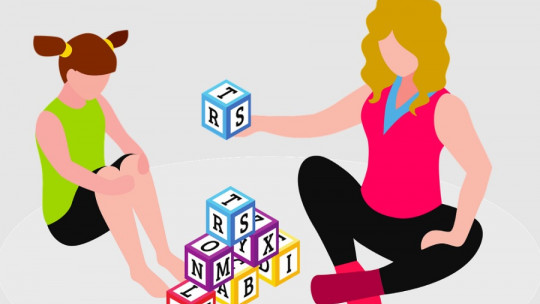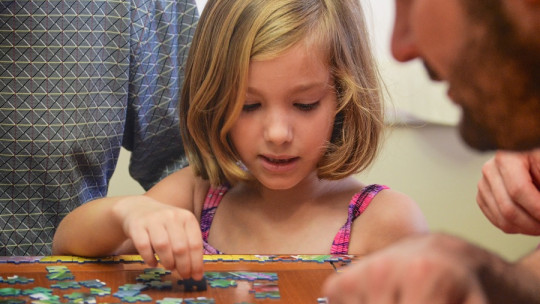As awareness increases about the needs of children in the first years of their development, psychological and health intervention in the field of childhood is a service offered by more and more professionals from both the health world and the Psychology in general. The idea that children are just small versions of adults has already been discarded, and today we know that they have qualitatively different characteristics, not just a lack of experience and knowledge.
In the field of health intervention in young children, early care is the most in-demand discipline and the one that is specifically responsible for caring for children from 0 to 6 years old who may present some type of problem or deficit in their development on an emotional level. maturation, in language or in their motor abilities.
This type of intervention offers great satisfaction to the professionals in charge of attending to the needs of children and requires a high level of training, as well as some specific requirements. If you want to dedicate yourself to early care and want to know the main requirements to achieve your professional goals see the article we present below.
What is early care?
Early care is the discipline specialized in providing health, psychological, speech therapy, or any other area of bio-psycho-social development that boys and girls from 0 to 6 years old may need
More specifically, early care professionals are experts in offering care and/or preventive treatment to children with developmental problems or at risk of suffering from them.

Likewise, these problems can also have various causes, and these can be of prenatal origin (originating before childbirth), perinatal (originating during childbirth or immediately after childbirth) or postnatal (originating after childbirth and up to 6 years of age). .
Interventions in early care They are carried out in a multidisciplinary manner by a team of specialized professionals working in a coordinated manner among which three types of profiles stand out: psychologists, speech therapists and physiotherapists.
In addition to that, the intervention of the boy or girl’s family is also essential, since the support of parents, siblings or other close relatives can function as a very useful therapeutic element during the intervention, even if they do not adopt professionalized roles. .
But let’s see in more detail what the requirements are to dedicate yourself professionally to early care.
Main requirements to work in an early care center
Although early care can be an apparently heterogeneous discipline, which can be carried out in one way or another depending on the background of the professional carrying out each intervention, in the case of Spain there are some essential requirements that are necessary to work in an early care center.
1. Basic profiles
As indicated, early care teams are made up of essential professionals who work together and in coordination and who come from health sciences and psychology.
These profiles are those of the psychologist specializing in early care, the speech therapist and the physiotherapist and each of them offers a crucial service to address those deficits that the child may present in his development.
In this multidisciplinary team, the psychologist will address emotional deficits, psychological alterations, maturational development problems or cognitive disorders; The speech therapist addresses language development deficits at a stage of life in which it is essential to relate to others and not have problems in the first years of school, and the physiotherapist is in charge of the physical environment, working on prevention and detection of alterations that affect psychomotor skills and posture. In all three cases, you have to go through 4-year university courses, and then train in specializations.
Each of these specialized professionals is responsible for attending to an area of child development and to achieve success in their intervention it is necessary that they have the appropriate training and experience.
2. Specialized training
To become an early care professional it is necessary to specialize with one of the many master’s degrees and postgraduate studies that are offered in our country and also on the Internet online. In this way, updated training is obtained that is more adapted to the practical aspects of day-to-day care for children and families.
Other professionals
In addition to the classic team of early care professionals, there are other complementary profiles who are specialists in child development and make their knowledge available for intervention with the young boy or girl.
These other professional profiles may be requested by the specific institution in which the service is requested or by the relevant administration, and The most common are graduates in Early Childhood Education, graduates in Primary Education, Pedagogues and Psychopedagogues
Adapted intervention
Another of the main characteristics of early care intervention is that it must be adapted at all times to the characteristics of each child, always taking into account their needs and well-being.
This means that primary care professionals They should always work based on the child’s level of development, their particular needs, their sociocultural environment and their family situation. That is why it is of great importance to also work with the patient’s family.
Working with family is key
As indicated above, work with the family in primary care intervention must be constant and close, since The boy or girl’s family represents a very important support for the client
In these cases, the early care professional is the one who designs the intervention programs and strategies, but the patient’s family can also give their opinion on the type of intervention and is the one who puts it into practice on a daily basis.









